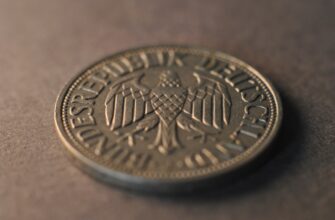- Understanding the USD to Naira Exchange Rate
- Key Factors Driving USD to Naira Fluctuations
- How to Convert USD to Naira Efficiently
- Top 5 Tips for Maximizing Your USD to Naira Exchange
- Historical USD to Naira Trends: A Snapshot
- Economic Impact of USD/NGN Exchange Rates
- FAQ: USD to Naira Conversions Explained
Understanding the USD to Naira Exchange Rate
The USD to Naira exchange rate is a critical financial metric impacting millions of Nigerians, expatriates, and businesses daily. With Nigeria’s economy heavily reliant on imports and foreign exchange, fluctuations in this rate directly affect inflation, purchasing power, and investment decisions. As of 2023, the Naira faces persistent pressure due to oil price volatility (Nigeria’s primary export), limited foreign reserves, and parallel market influences. Whether you’re sending remittances, traveling, or managing international transactions, understanding how to navigate USD/NGN conversions can save you significant money.
Key Factors Driving USD to Naira Fluctuations
Several interconnected elements influence the dollar-to-Naira rate:
- Oil Prices: Nigeria earns over 80% of its foreign exchange from crude oil. When prices drop, Naira weakens.
- Central Bank Policies: Interventions, forex restrictions, and interest rate adjustments by the Central Bank of Nigeria (CBN) directly impact liquidity.
- Inflation Differentials: Higher inflation in Nigeria compared to the US erodes the Naira’s value.
- Parallel Market Activity: Limited official forex access fuels black-market demand, widening gaps between official and unofficial rates.
- Political Stability: Elections, policy uncertainty, and security issues can trigger investor caution and currency depreciation.
How to Convert USD to Naira Efficiently
Choose the right method based on speed, cost, and convenience:
- Banks: Safest option with CBN-regulated rates. Ideal for large transfers but often involves paperwork and slower processing.
- Licensed Bureaux de Change: Offer competitive rates for cash exchanges. Verify CBN authorization to avoid scams.
- Online Platforms: Services like Wise, WorldRemit, or Binance P2P provide real-time rates and lower fees for digital transfers.
- Mobile Apps: Fintech solutions (e.g., Grey, Sendwave) enable instant transfers to Nigerian bank accounts or mobile wallets.
Top 5 Tips for Maximizing Your USD to Naira Exchange
- Monitor Live Rates: Use tools like XE.com or CBN’s website to track daily fluctuations.
- Avoid Airports/Hotels: They offer Nigeria’s worst exchange rates – plan conversions in advance.
- Compare Fees: Some services advertise “zero fees” but hide costs in poor rates. Calculate the total Naira received.
- Use Limit Orders: On P2P platforms, set your desired rate and wait for a match to avoid panic selling.
- Time High-Demand Periods: Rates often improve during peak business hours or month-ends when diaspora remittances surge.
Historical USD to Naira Trends: A Snapshot
The Naira has experienced significant devaluation over the past decade. In 2015, $1 equaled ≈₦197 officially. By 2023, the official rate hovered near ₦460, while parallel markets exceeded ₦750. This decline stems from falling oil revenues, COVID-19 disruptions, and foreign investment outflows. Despite CBN’s efforts to unify exchange windows, the gap between official and unofficial rates persists, reflecting structural economic challenges.
Economic Impact of USD/NGN Exchange Rates
A weaker Naira makes imports costlier, fueling inflation (which hit 28.9% in 2023). Businesses relying on foreign inputs face rising production costs, while citizens purchasing overseas goods or paying for education abroad suffer reduced purchasing power. Conversely, exporters benefit from higher Naira earnings. The CBN walks a tightrope between stabilizing the currency and maintaining forex reserves for essential imports like fuel and machinery.
FAQ: USD to Naira Conversions Explained
Q: What’s the difference between the official and parallel market rates?
A: The official rate is set by the CBN for government and prioritized transactions. The parallel (black market) rate is determined by supply/demand and often 40-60% higher due to dollar scarcity.
Q: Can I exchange USD to Naira at Nigerian airports?
A: Yes, but rates are typically 10-15% worse than city bureaux de change. Only exchange minimal amounts if urgent.
Q: Are there limits on USD to Naira transfers?
A: Banks and CBN impose limits (e.g., $10,000/year for personal transfers). For larger sums, provide documentation proving the source of funds.
Q: How do I avoid scams when converting USD?
A: Use CBN-licensed providers, avoid “too good to be true” rates, never share bank details with unverified parties, and insist on receipts.








